In a modern post-industrial, “digital” society, the strategic implementation of technology has become not just important, but truly necessary for successful competition and stable development.
Regardless of the size of the corporation or the industry, innovative technologies and IT systems are becoming key factors that determine the efficiency and productivity of any business.
According to Fortune Business Insights, the global digital transformation market is projected to grow from US$2.71 trillion in 2024 to US$12.35 trillion by 2032.
These figures are hardly surprising, given that initial investments in your company’s digitalisation typically promise an impressive return on investment.
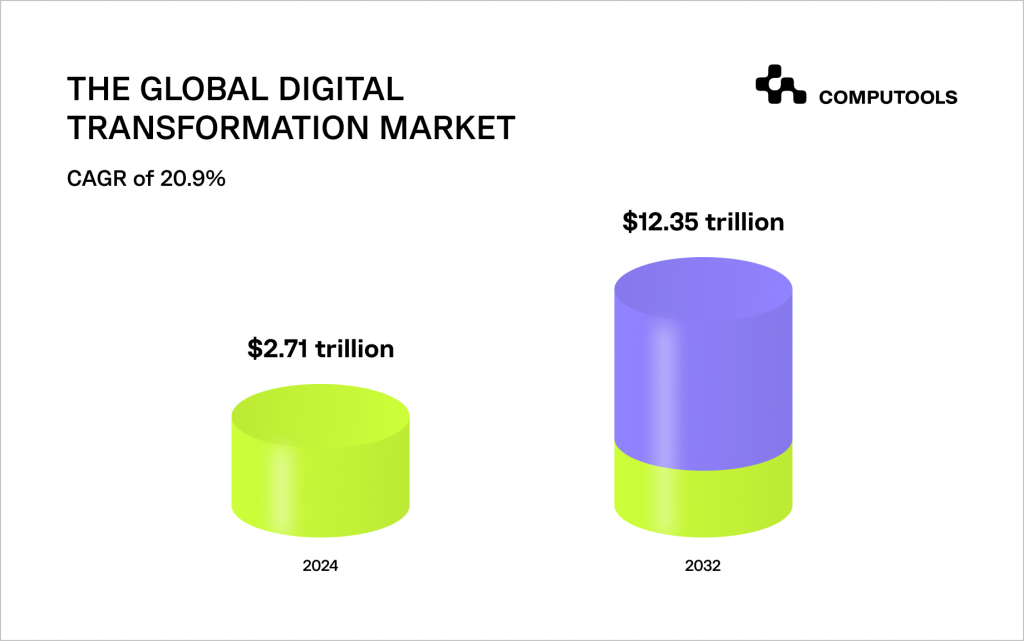
Implementing IT innovations offers several benefits, including streamlining business processes, boosting work efficiency, improving interactions with customers and employees, and lowering costs and risks. Furthermore, it creates new opportunities for monetising existing resources.
In this article, we’ll explore how advanced IT systems can enhance a business’s core competencies in digitalisation and automation, and how these competencies can provide added value to the business.
Why Businesses Need Innovative IT Systems
Nowadays, ‘process automation‘ is largely synonymous with ‘digitalisation’ – the transformation of business activities through the introduction and use of information technology.
Both of these concepts are powered by modern solutions that reshape work practices and company processes.
With the increasing complexity of business ecosystems and changing market dynamics, organisations must remain agile and adaptable.
Advanced software solutions such as ERP (Enterprise Resource Planning), CRM (Customer Relationship Management), and BI (Business Intelligence) platforms play a key role in automating tasks and nurturing a technology-driven mindset among employees.
Related Experience
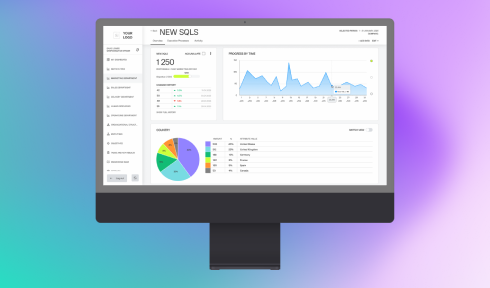
Here are key reasons why constant digital innovation is important for any business:
• Innovation improves your business by finding more profitable methods, launching sought-after products or services, optimising operations, and developing new skills within your company.
These improvements often lead to increased profits, and without innovation, your business risks falling behind current trends, potentially causing customers to lose interest in your offerings.
• Digitalisation promotes adaptability. Predicting the future is challenging, especially during uncertain times when businesses worldwide experience disruptions and have to pivot from their usual operations. Innovative companies are usually better equipped to navigate these shifts more effectively.
• Innovation allows you to leverage new technologies. In a world driven by software solutions, advancements offer profitable opportunities for businesses willing to take risks.
Modern technologies can streamline manufacturing, boost productivity, expand your global customer base, and monitor performance, positioning your business for greater success.
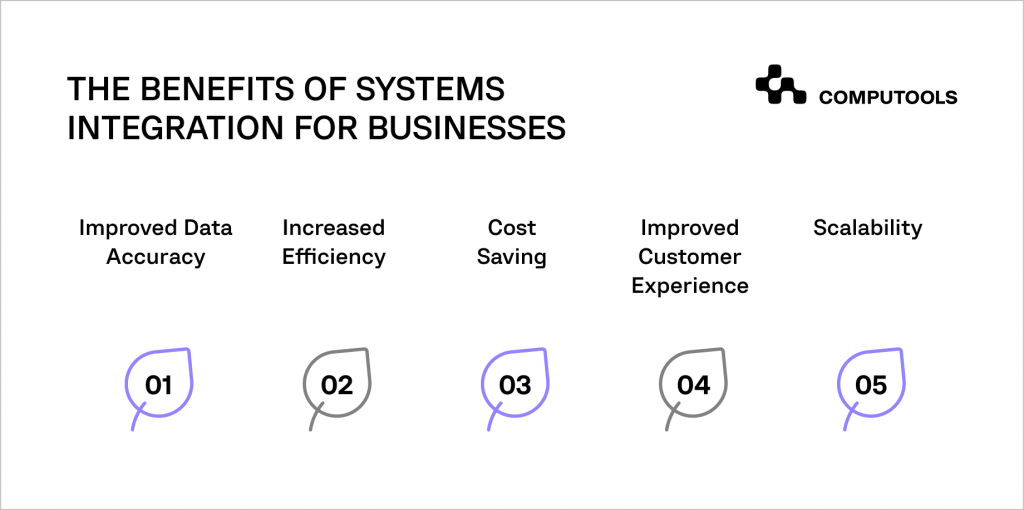
Key IT Systems for Enterprise Integration
Improving operations often means investing in various systems responsible for automation, business development, improved communication, or better functionality.
Let’s explore several key systems that can be integrated into any enterprise to strengthen its digital and communication capabilities.
1. Enterprise Resource Planning Systems
ERP systems enable the integration of various business processes, from inventory and financial management to production and logistics.
They facilitate smooth and optimised operations across the entire company, simplify internal coordination, and reduce risks.
ERPs also help small enterprises consolidate different information systems, inventory management software, and more into a single database.
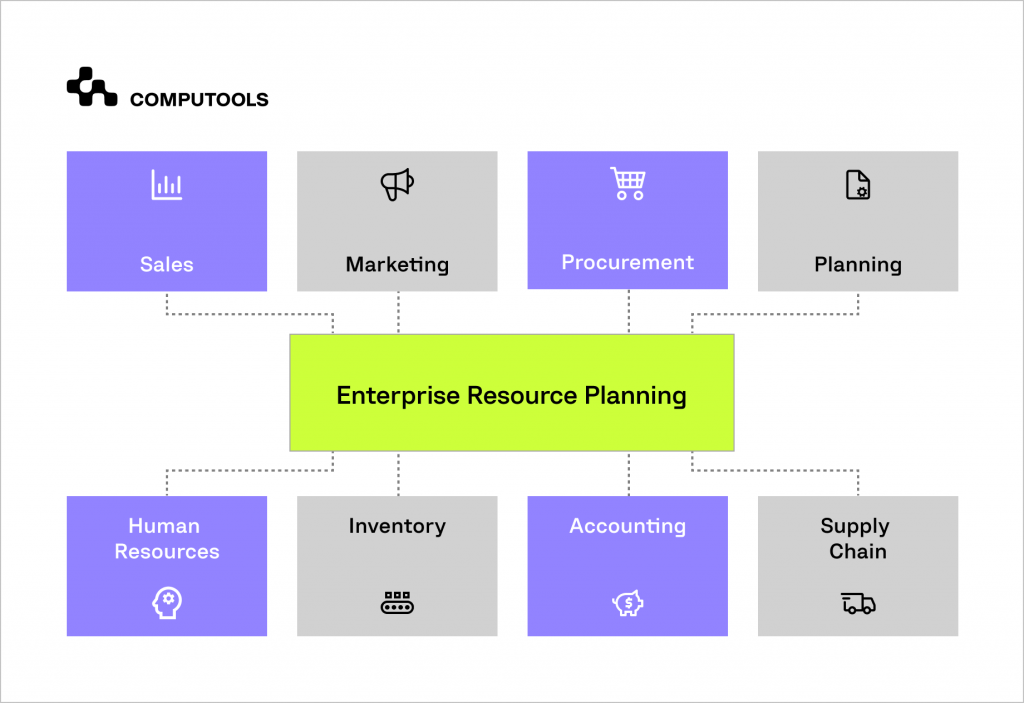
2. Cloud Systems
Using cloud solutions allows for the storage and processing of data online, improving accessibility and shared access to information.
It also enables businesses to scale resources efficiently and reduces the cost of hardware, as entrepreneurs can easily access computing power without any complications.
3. Data Analytics
Analytics tools help companies to gain valuable insights from large volumes of data.
This facilitates informed decision-making, trend forecasting, and the identification of opportunities for optimisation.
Many CRM systems already offer detailed analytics and assist entrepreneurs in making the right decisions.
Chatbots and Automated Customer Advisory Systems
These technologies have become widely popular in call centre operations and later expanded to e-commerce apps and websites.
They provide round-the-clock assistance, handle simple inquiries, and advise users about company services.
Chatbots can also remember information (such as delivery addresses and client details), which makes it easier for visitors to reorder.
For companies, business process automation in communication is beneficial as it frees up employee time, allowing them to focus on other business operations.
Leveraging IT Systems to Monetise Business Competencies
Information systems do more than just improve organisational performance, they open up innovative opportunities to use resources more effectively.
For instance, when a company adopts an information system, be it ERP or Scaler, it gains the ability to use its core competencies and strategic networks to achieve its goals, vision, and mission, as well as expand its competitive reach.
The true value of implementing IT systems in a business lies in enhancing the company’s fundamental capabilities.
This may be optimising supply chain management, using data-driven insights to improve customer interactions, or process automation of routine tasks to free up staff for more complex problem-solving activities.
Once a business has integrated these systems and seen the benefits, it can begin to package these upgraded capabilities as services or products to sell to other organisations.
This approach is specifically valuable in industries where technology isn’t the main focus but can improve operational efficiency.
For example, a manufacturing company that has mastered an IT platform for supply chain logistics can market this expertise to customers in the industry.
Additionally, developing core competencies often relies on both knowledge gained from experience and new insights from external sources.
An information system that promotes knowledge sharing across different parts of the business can also greatly strengthen these capabilities for faster business development.
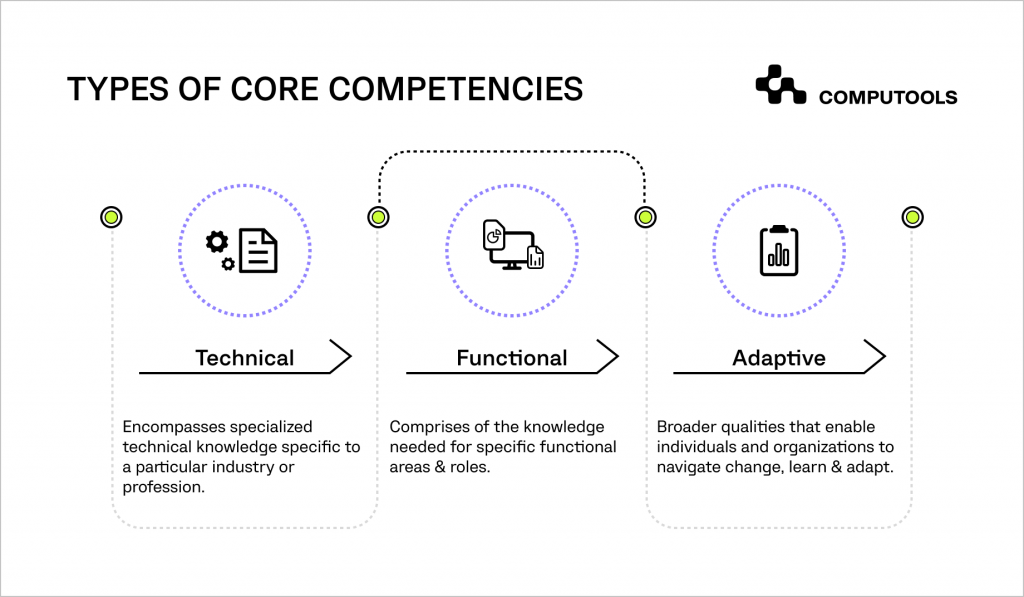
The Role of IT Director in Implementing Innovations
Companies use platforms like Microsoft Teams or other communication systems as spaces to execute their ideas, which adds greater value to their products.
These platforms support the implementation of strategies that improve both the company’s offerings and its operational efficiency.
IT directors play a key role in this process, as they must carefully select and manage all company software to maximise its benefits for the business, which includes business process automation for better efficiency.
The CEO sets the strategic direction, and the IT director must effectively implement these strategies.
Furthermore, the rise of cloud systems has shifted some responsibilities away from the IT director, particularly those related to software maintenance.
However, this shift brings a new challenge: ensuring that employees use these cloud-based resources effectively.
Overall, the role of today’s IT directors has evolved to focus less on technical aspects and more on analytical skills.
They need to have a deep understanding of the company’s internal business processes and must be skilled at selecting the best software solutions to ensure these processes operate efficiently and smoothly.
Navigating Scalability Challenges for Business Growth
Scalability may be the most important aspect to consider when implementing enterprise systems, and IT directors need to deploy the right tools promptly to prevent stalling growth.
Consider the complexity of managing a workforce of 15,000 across various countries. This isn’t just a number; it involves coordinating accounting operations in multiple nations.
Therefore, it’s important to have a unified platform that consolidates accounting from different parts of the world into a single financial system.
If the company isn’t prepared for this level of scalability, setting up such software solutions could take years.
Moreover, if there’s a need to expand into another 10 countries, the existing systems might limit your strategic options due to their current capabilities.
Thus, implementing these systems doesn’t just relate to a straightforward return on investment (ROI); it involves broader considerations like philosophy, strategy, scalability, and the overall appropriateness of the decision.
Conclusion
To sum up, implementing modern technologies in every business is critically important for maintaining competitiveness, efficiency, and resilience in today’s digitised market.
With the right custom software development solutions, enterprises can improve their productivity, reduce costs, enhance customer service, and strengthen their market position, all while ensuring steady business development.
Contact us now at info@computools.com to schedule a consultation with our business development specialists.
Computools
Software Solutions
Computools is an IT consulting and software development company that delivers innovative solutions to help businesses unlock tomorrow.









“Computools was selected through an RFP process. They were shortlisted and selected from between 5 other suppliers. Computools has worked thoroughly and timely to solve all security issues and launch as agreed. Their expertise is impressive.”